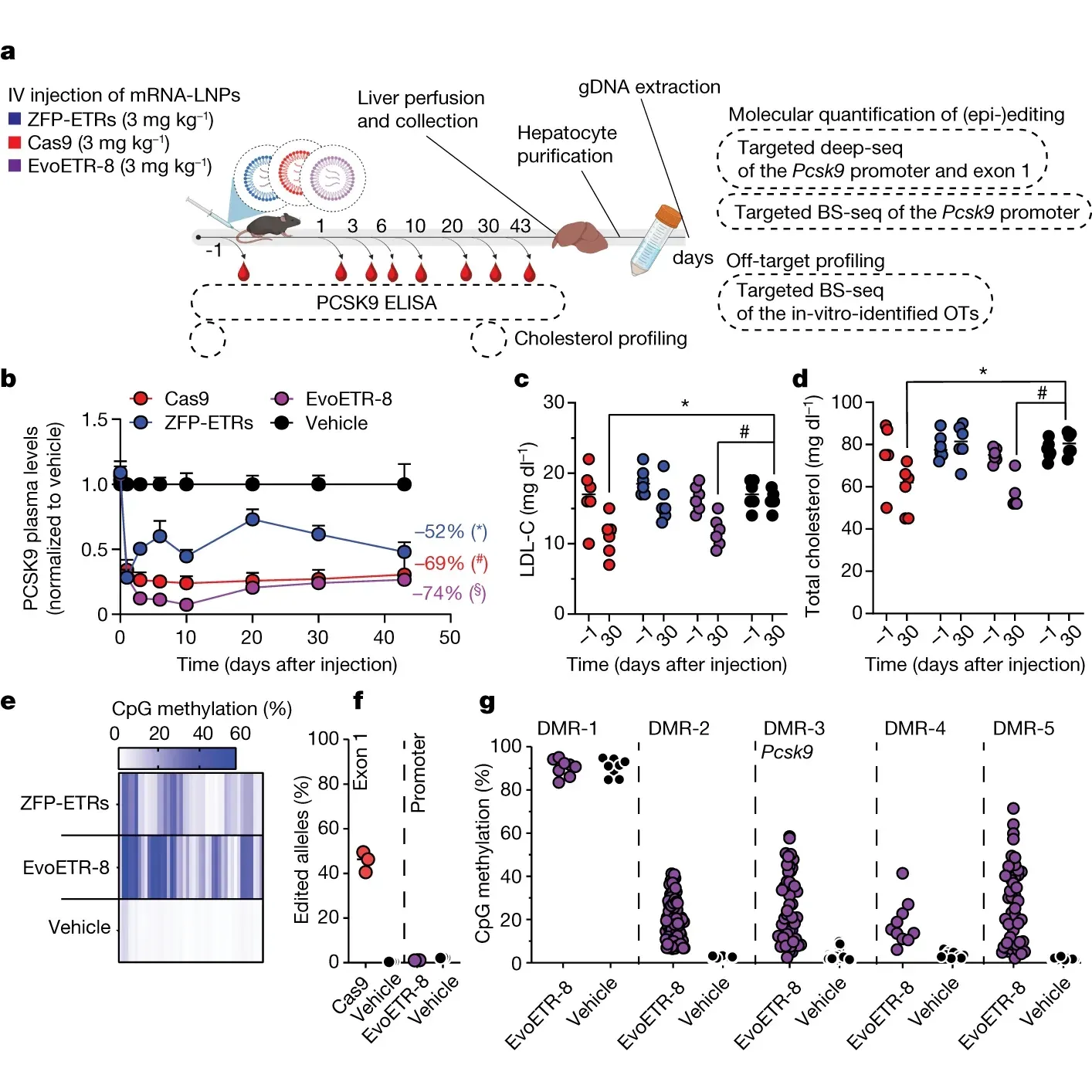Epigenome editors are coming for cholesterol (and other diseases)!
Ever heard of an ‘epigenome editor?’ Well, buckle up, because they could be the source of a long-term cure for high cholesterol!

You probably know about CRISPR-Cas, zinc finger finger proteins (ZFPs), or transcription activator-like effector nucleases (TALENs) which can be engineered to bind to and directly edit DNA.
These all have been used with varying degrees of success and result in permanent changes to the DNA of the cells in which they operate.
A safer method of genome editing in many cases would be if we could flip a little switch to turn off the things that don’t work, and/or turn on the things that do!
This is where epigenome editors come in and they’re the cool new kids on the genome editing block.
They’ve been engineered using the DNA binding trick of those other editors but combined with pieces of different proteins to create protein Frankensteins that are able to turn genes on or off.
This works through epigenetic modification of DNA!
And epigenome editors are designed to attract methylases (off switch) or acetylases (on switch) to ‘edit’ how specific genes are expressed.
The nice thing about this scheme is that these changes can be reversed which could make them safer to use than their DNA slicing and dicing cousins.
As a proof-of-concept, the authors show that epigenome editors can be used to reduce cholesterol.
Their target gene of choice was PCSK9.
This is an enzyme involved in destroying the LDL receptor which pulls bad cholesterol out of the blood stream.
Getting rid of PCSK9 has been shown to be very efficient at reducing cholesterol and two extremely effective (and expensive) biologic drugs are available that do just that!
But, a long-term cure might be the preferable solution.
So, the authors engineered 3 different proteins to epigenetically modify the PCSK9 gene, two of them based on ZFPs (Engineered Transcriptional Repressors - ETR) and one based on a deactivated Cas9.
The results of this experiment can be seen in the figure above: a) shows an overview of the experimental design; b) the effect of the engineered ETRs and Cas9 on PCSK9 levels; c and d) the effect on cholesterol levels; e, f, and g) the amount of methylation in the specified regions of the genome.
While they were not able to completely eliminate the expression of PCSK9 with any of these methods, they did show that the ~70% reduction of PCSK9 and cholesterol was long lasting (100+ days), including after a partial hepatectomy, meaning the methylation signal was passed on to new cells after liver regeneration!
There’s still a bit of work left to do here before we see these solutions in the clinic, but epigenetic editors seem like they might be something to keep an eye on!
Read the full issue of Omic.ly Premium 16


